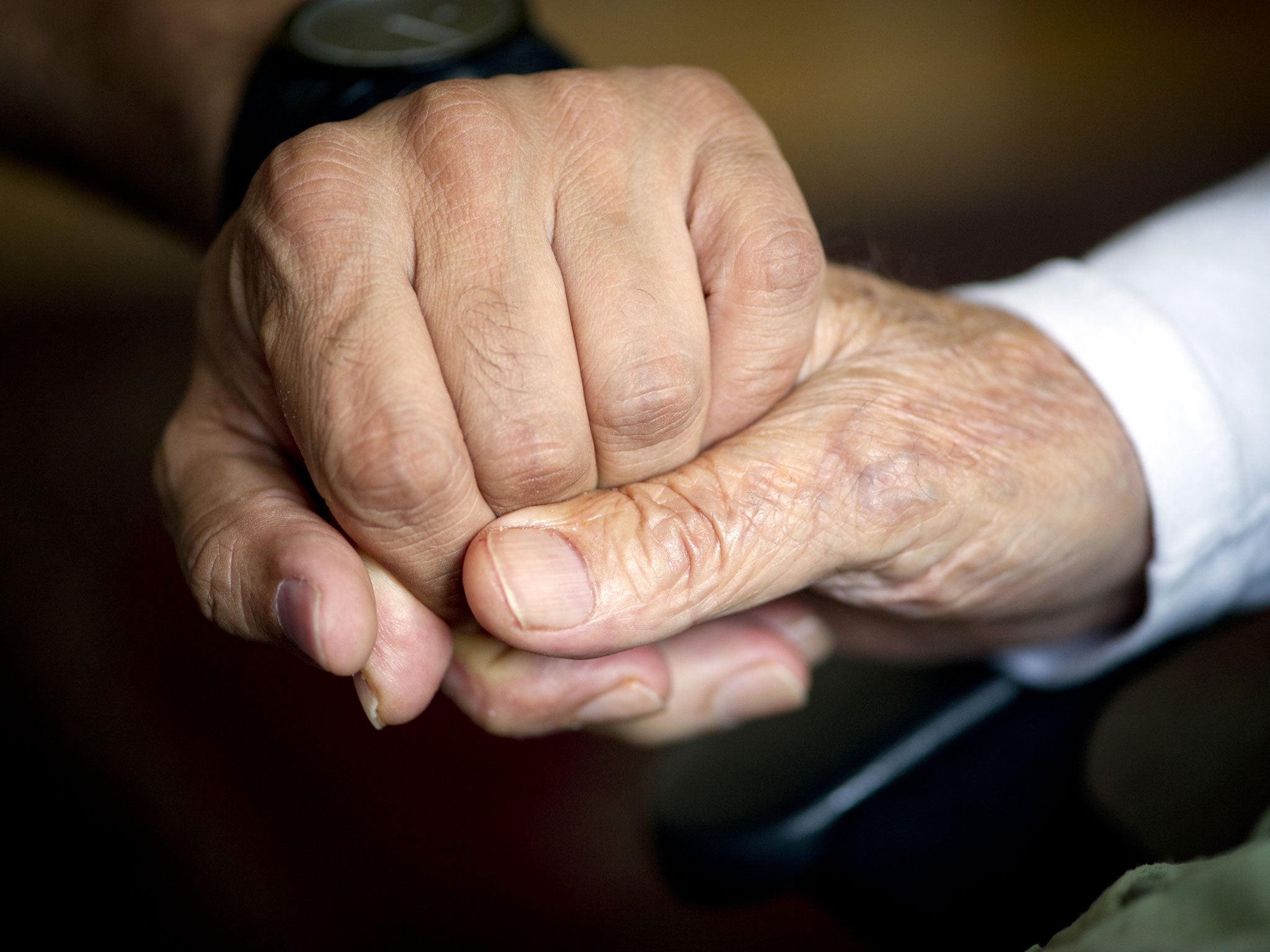Hospices can help alleviate symptoms of depression for bereaved family members after loved ones pass, study finds
Research finds end-of-life care can also help surviving spouses

The friends and family of terminally ill patients who use a hospice show reduced signs of depression after the loss of their loved ones in comparison with those whose spouses did not, a new study has suggested.
Hospices provide medical, emotional, psychological and spiritual end of life care for patients with incurable illnesses. They also offer wide-ranging support for family members and teach them how to care for their spouses.
Research by Mount Sinai Hospital in New York found improvement in depression after bereavement was more common among those who had used a hospice for three days a week or more. The study also highlighted that out of 1,016 deceased patients and their loved ones, this benefit that was even more evident a year after their death.
Katherine Ornstein, Assistant Professor of Geriatrics and Palliative Medicine at the Icahn School of Medicine at Mount Sinai and lead author of the study, said the data highlights the benefits using a hospice also has for spouses.
“If we want to understand the impact of hospice care, we should consider the potential benefit not just to the patient, but to the caregiver, and perhaps, the entire family and social network,” she said. “We need to remember that care near the end of life affects not only patients, but also their loved ones.”
Hospice care is free on the NHS in the UK. You can find out more about end-of-life care here.
Join our commenting forum
Join thought-provoking conversations, follow other Independent readers and see their replies
Comments